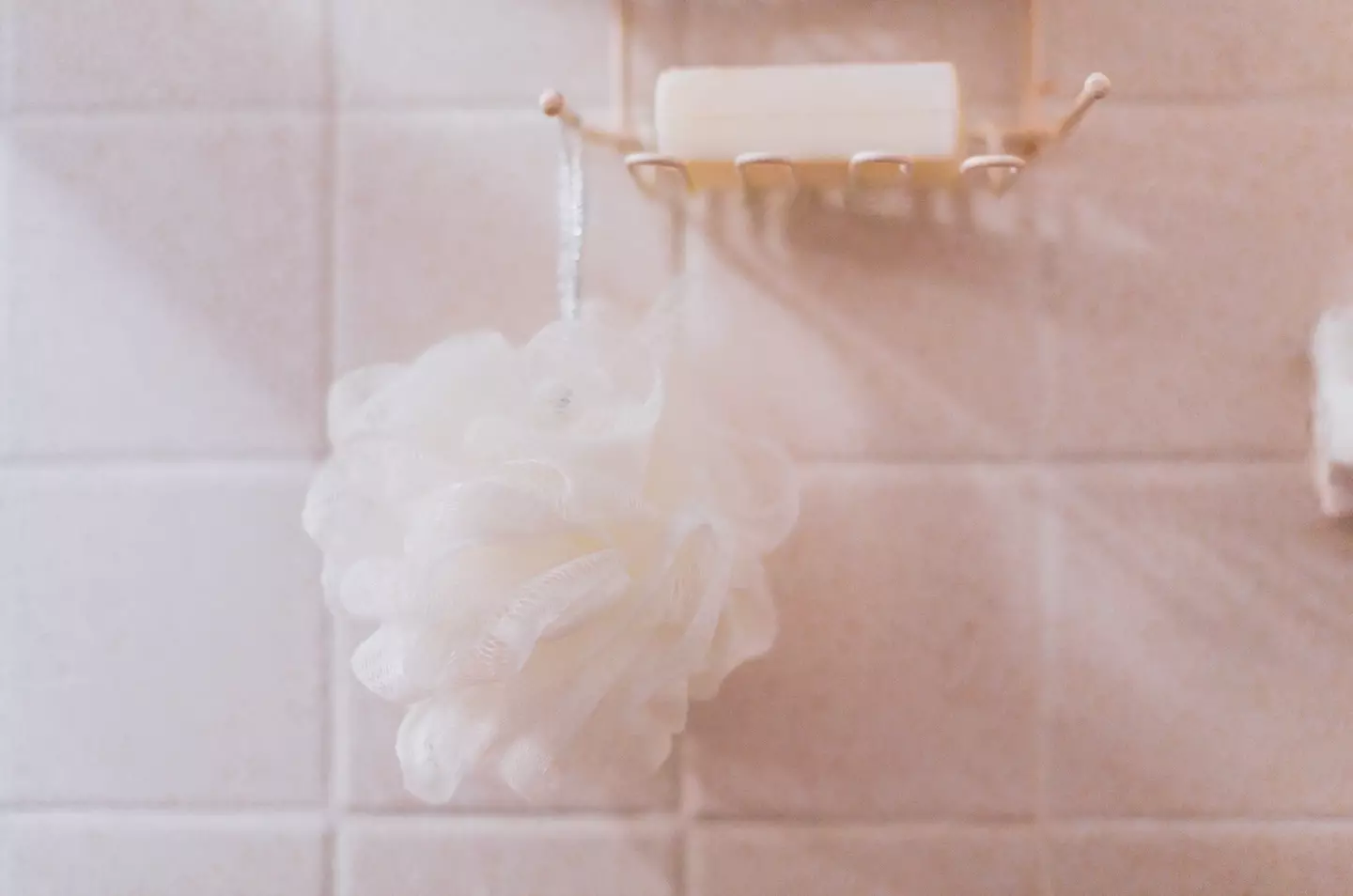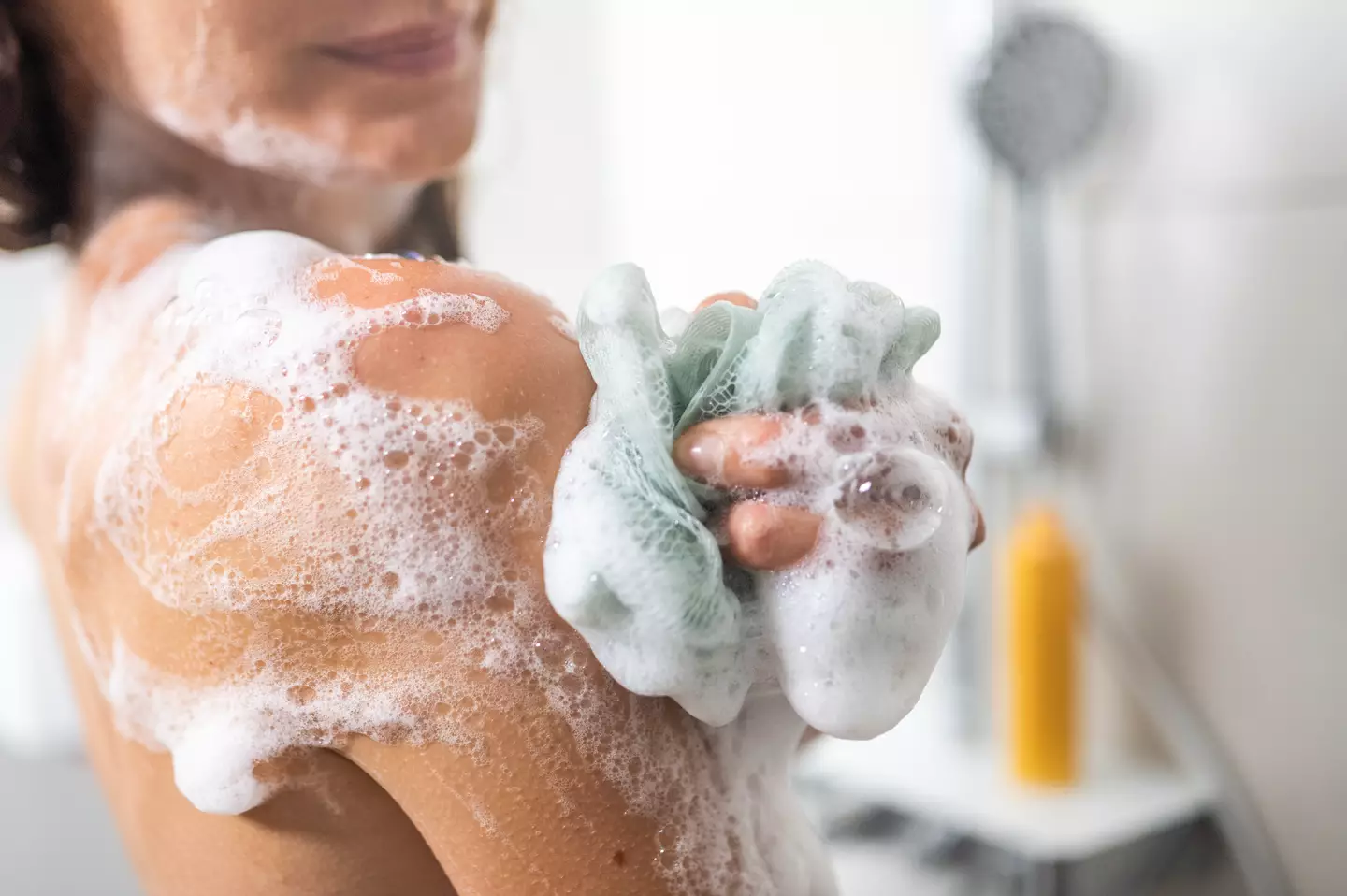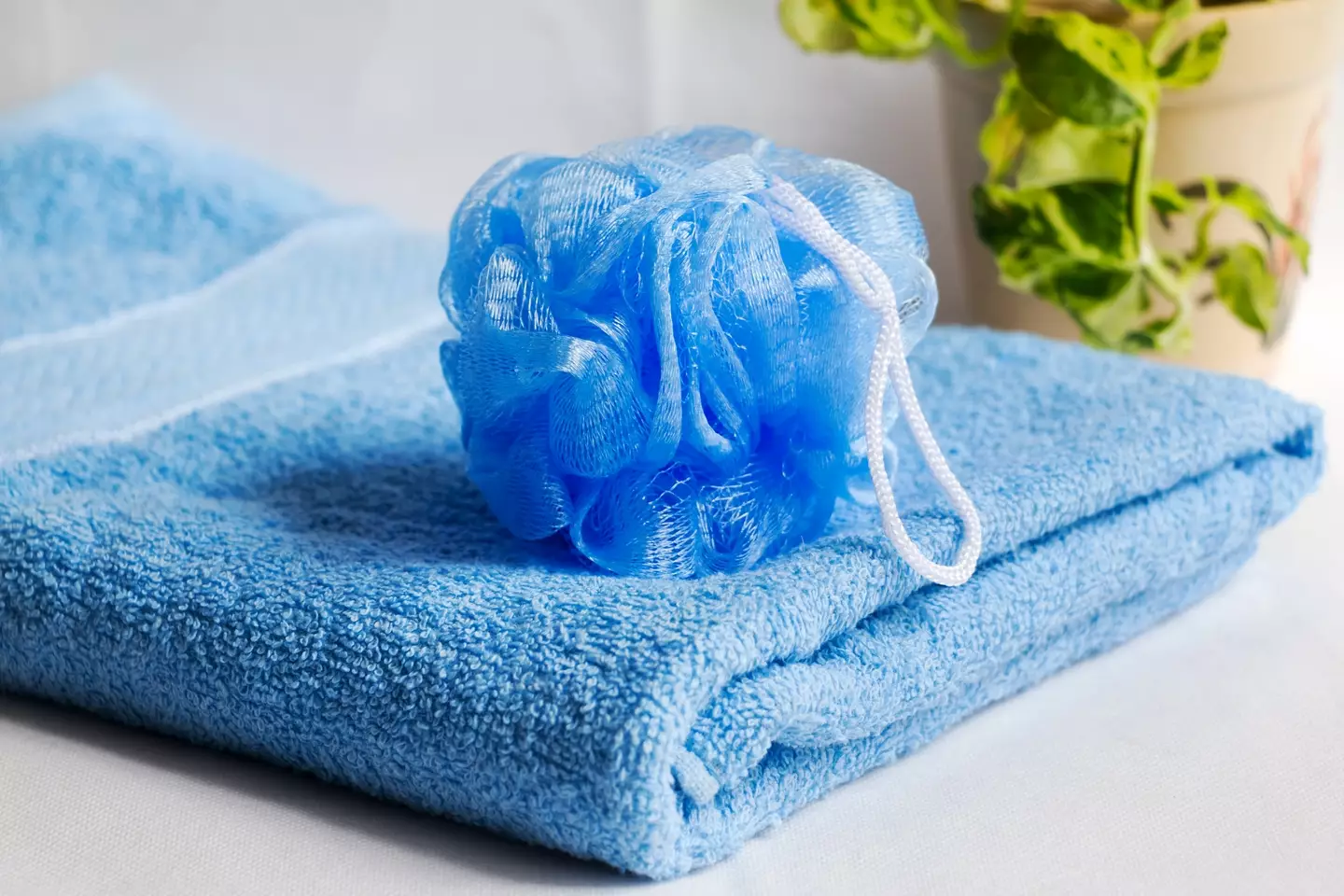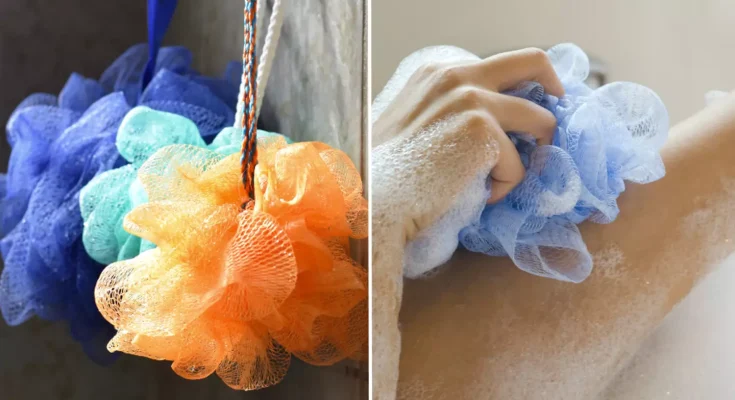And without putting anyone to shame, we’ve recently caught wind of a potential health threat that only affects those in the former group.
Let’s just say, it isn’t for the fainthearted…

Loofahs can be hotbeds of bacteria (Jena Ardell/Getty)
If you’re unfamiliar with the somewhat unusual term ‘loofah’, you’ll almost certainly recognise the bathing tool it describes.
But if you need a little reminder, a shower loofah is basically a type of sponge made of a network of mesh-like knots in a circular shape.
It usually has a loop of string tied to the middle, too, so that you can hang it up on your shower hooks or taps.
They’re usually made from plastic, and serve as a means of exfoliating and cleaning your skin while you’re in the shower.
You squeeze a drop of shower gel onto the wet loofah and go to town – scrubbing every fold and crevice of your body with it until you’re squeaky clean.
Then, when you’re done, you give it a few squeezes until the running water to rise, hang it up, and you’re ready to go again next time.
These handy sponges are a means of washing your entire body – removing dead skin as you go – without having to use your hands.

Some dermatologists have issued a stark warning (simonkr/Getty)
And the re-useability of the loofah is what serves as a major selling point among hundreds of thousands of consumers a year.
But, what if we told you that this particular aspect of the product could actually be doing more harm to your bathing routine than good?
In fact, according to experts at the Dermatology Institute, many skincare experts wouldn’t touch a loofah if they were the last cleaning device on earth…
This is because they’re apparently a complete and utter hotbed for bacteria, and could hold onto harmful germs for months.
Joel Schlessinger MD – a board-certified dermatologist – recently told the forum that he’d never use one on his skin while showering for this reason alone.
“I wouldn’t recommend using a buff puff or loofah” he explained.
“Loofah sponges are intimate with many unclean areas of the body and then sit around allowing bacteria to multiply within the nooks and crannies of the sponge.”

The devices must be washed thoroughly (photograph by dorisj/Getty)
The site explains that loofahs can serve as the perfect space for organisms to colonise, being that they’re often warm and moist.
And it’s these types of environments that could harbour the risks of serious infections, which will naturally affect bathers with lower immune systems considerably worse.
Before you begin beefing with us over your beloved loofah, however, health experts did say that there are some circumstances where these devices are the best means of cleaning – especially in cases where a skin condition is present.
Individuals who suffer from conditions which see a buildup of cells – an example being psoriasis – are actually recommended to use loofahs to remove the skin.
They should, however, remain mindful of cover-scrubbing, only use it once or twice a week, and always let the loofah rinse properly before letting it air dry.
You can also soak the device in vinegar or diluted bleach as a means of killing any remaining microorganisms.



